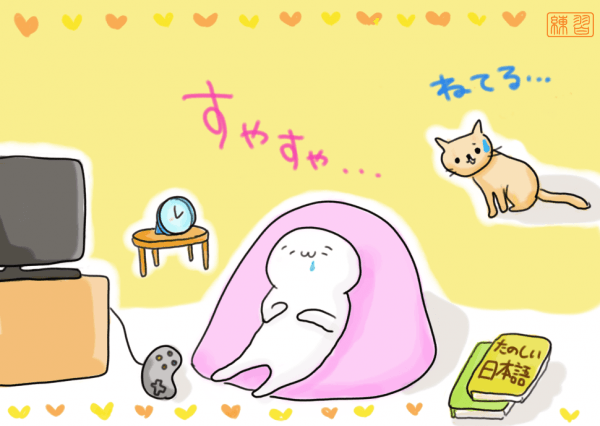After doing A

御昼寝を為てからゲームを為ます。
I'll play some games after I take a nap.
30
肉を焼いてから、其処に有る麺を混ぜてね。
After you grill the meat, please mix it over there with the noodles.
2
27
お兄さんは毎日仕事が終わってからボランティアを為る!尊敬して居る。
Every day, my (older) brother does volunteer work after his work is finished. I really respect him.
0
45
赤ちゃんと猫が遊んでから寝ました。
After the baby and the cat played, they went to sleep.
2
14
彼が来てから討議を始めよう。
Let's begin the discussion after he comes.
0
26
彼が来てから出発します。
I will depart after he comes.
0
13
先ずシャワーを浴びてから、勉強してもいいですか。
Is it alright if I study after I take a shower?
1
12
病気に成ってから考え方が変わりました。
My way of thinking changed after I became ill.
0
24
勉強が終わってから運動します。
I will exercise after I finish studying.
0
10
此の新聞は最も人気の有る筆者を外してから、読者数を減らし始めた。
The newspaper began to lose readers when it dispensed with one of its most popular writers.
0
-1
彼は大きなため息をついてから口を開いた。
After letting out a big sigh, he opened his mouth (to talk).
0
10
私はお皿を洗ってからテレビを見た。
I watched TV after I washed the dishes.
0
14
私は家に帰ってからうたた寝為た。
I took a doze after coming home.
0
4
私は少し買い物を為てから行くと彼女に伝えて下さい。
Please tell her I'll come after I do some shopping.
0
6
鐘が鳴ってから5分経って彼は来た。
He came five minutes after the bell had rung.
0
9
日が暮れてから散歩に出かける。
Go for a walk after dark.
0
Getting the sentences
Construction
(Elements in parentheses are optional.)
Basic Examples
私は食べてから => After I eat..
おかあさんはしごとをしてから => After mom works...
This is a fairly simple form that focuses on the linear progression between 2 actions/events. It does not suggest any kind of cause/effect relationship, just that one event comes after another.
Past and non-past usage
It's important to remember that regardless of when the events take place (past or non-past), the first verb is always in the て form.
昨日、食べてから勉強しました。(correct)
Yesterday, I studied after I ate.
今日、食べてから勉強します。(correct)
Today, I'll study after I eat.
Related Expressions
上で
後で
後で
Where this grammar is found
Grammar usage notes
The same purpose can be achieved with Verb たform + あと, second clause. For example, the above sentences could be:
きのう、食べたあと、勉強しました。
今日、食べたあと勉強します。
きのう、食べたあと、勉強しました。
今日、食べたあと勉強します。
Questions/Discussion
whats the difference between たべたあと and 食べてから?
Because あと means "after" and から marks a point of origin, their interpretations lead to the same meaning within the context that you gave: with あと it is "after eating, do X" and with から it is kind of like saying "starting from the point of eating, do X next". Essentially, the conclusion is the same, the approach to saying it is what differs.